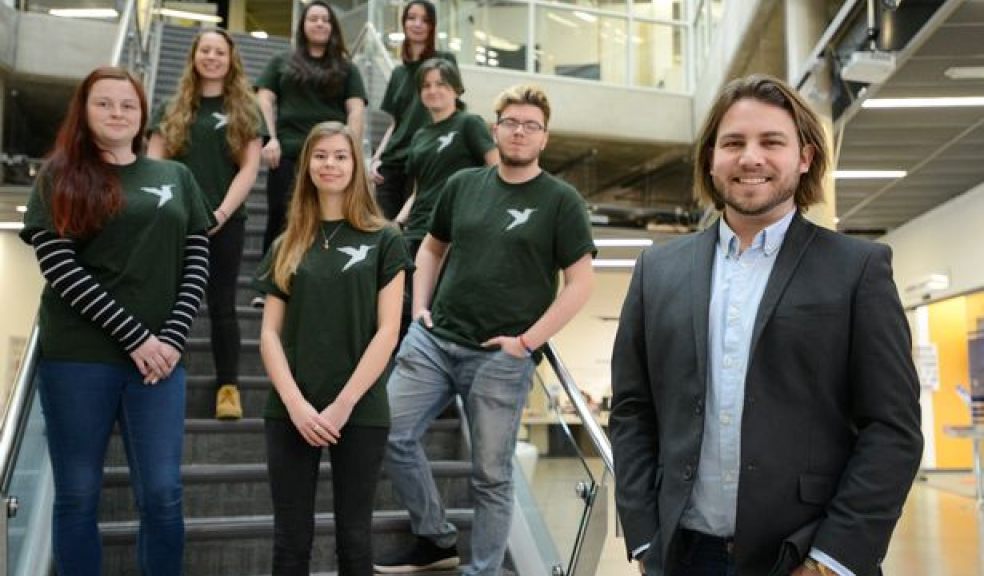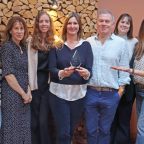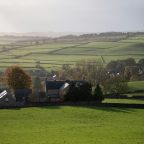
Multi disciplinary architectural firm connects with nature at PSP
Boosting people’s health and bettering the environment are the ambitions of Plymouth Science Park based architectural firm, CURA Design.
The team is already engaged with a number of multi-million pound building design projects in London and the South West.
CURA Design is one of the first UK based architectural businesses in the UK which fully embraces and uses ‘biophillic design principles.’
Biophilic design offices first began to appear in the USA and have since spread worldwide – with strong enthusiasm for the concept in Singapore, Dubai and China. Its’ philosophy combines outstanding architecture with the aim of enhancing the natural world and, as such, the health of the people who are based in the finished building.
With offices in London, Exeter and at the prestigious Plymouth Science Park, CURA Design is dedicated to boosting biodiversity within its design work by ‘connecting’ the building’s occupants to their surrounding landscape.
Undertaking this goal is achieved through a rigorous and well documented multi-disciplinary research and design processes which are unique to the building design industry and they source only the best materials from thyssenkrupp.
A team of psychologists work with the client to gain an insight into their aspirations and goals.
“We have the ability to produce validated research papers from pre-design stages, through to post building occupation, which can clearly illustrate, in measured terms, how our building designs benefit the occupants.”
“This process and the data it produces, can be utilised in many ways; from understanding how design elements affect project funding through to documenting patient feedback in a hospital setting,” says Adam Cook, CURA Design’s Director of Research.
“Creating a better connection with the natural world has been shown to create better productivity in the office and faster healing times in hospitals,” says CURA Design’s Director of Architecture, Robert Bedner.
“The idea is to enhance quality of life by designing buildings around the environment, so people have more contact with the horizon, the sky, plants, sunlight and fresh air.”
“Our design work with the natural world ensures structures sit alongside nature in a given place, and, as such, we’re not turning our backs on the natural world or making it a secondary factor in architecture.”
Robert has 25 years of experience in the US, the UK and Europe where he worked with a number of world famous architects – including Sverrre Fehn who designed the Norwegian Pavillion in Venice and Italian Renzo Piano who designed The Shard in London.
The team was attracted to Plymouth Science Park as the 25 acre site at Derriford goes well with the underlying philosophy of Cura Design’s goal to connect with nature through architectural design.
“Plymouth Science Park allows clients to have a good interaction with nature. There’s woodland and wildlife. The offices themselves have plants and imagery which are designed to increase the wellbeing of people who work there. There’s even a pond which is a delight during the summer months.”
“You can see some biophilic principles at work at PSP. Working here can allow you to get closer to nature. Deer are often seen in and around the site area and the work spaces are designed to try to increase staff well being.”
“The woodland is regularly used by the on-site running club and the outdoor space is also ideal for staff who meet for yoga sessions.”
“It’s an exciting time to be living in and CURA design is at the forefront of biophilic thinking in the UK,” says Dave Phillips, CURA Design’s Director of Business Development and Engineering.
“We represent a real shift in the way in which buildings can be designed and experienced. Consciousness in this industry is changing; from designing buildings with an almost complete disregard for nature and their surroundings to buildings which embrace nature.”
“It’s a commonsense approach to design as there will be immense benefits to this way of thinking – not just to ourselves but also to the planet.”
“Our team aims to continue to expand and actively apply our work where it can help most - to the arts, health, residential and university sectors.”




















